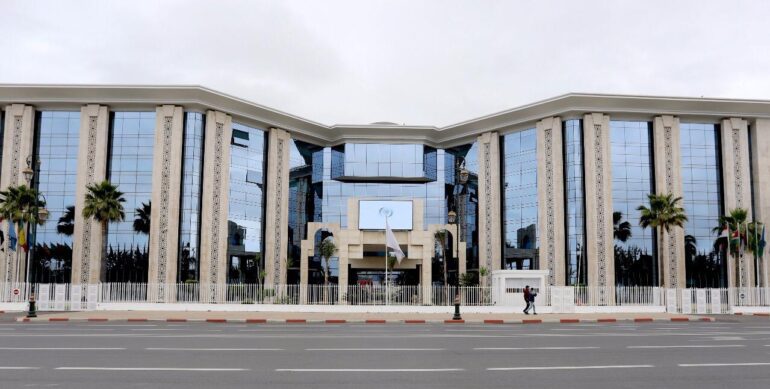TL;DR:
- Sultan Qaboos University (SQU) and ICESCO have signed a cooperation agreement to establish an ISESCO chair in machine learning for remote sensing and geographic information systems.
- The partnership aims to promote knowledge exchange and development in ISESCO’s areas of expertise.
- The agreement facilitates collaboration between professors, researchers, and university administrators.
- The establishment of the chair aligns with SQU’s academic vision and role in advancing cutting-edge technologies.
- The collaboration will drive innovation, research, and real-world impact in machine learning and remote sensing.
- The alliance signifies a commitment to academic excellence and interdisciplinary collaboration.
- The partnership sets the stage for groundbreaking advancements in the field of machine learning for remote sensing.
- The chair will attract top talent and foster collaborations with industry partners.
- The initiative contributes to the region’s digital transformation journey and societal development.
Main AI News:
Sultan Qaboos University (SQU) and the Islamic World Educational, Scientific and Cultural Organization (ICESCO) have forged a momentous partnership by signing a comprehensive cooperation agreement. The agreement, which aims to pave the way for the establishment of an ISESCO chair, focuses on the ever-evolving field of machine learning for remote sensing and geographic information systems. The signing ceremony, attended by distinguished figures including HH Sayyid Dr. Fahd bin Al Julanda Al Said, Vice-Chancellor of SQU, and Dr. Salim Mohammed Al Malik, Director-General of ISESCO, marks a significant milestone in advancing knowledge exchange and promoting development within ISESCO’s areas of competence.
This strategic alliance between SQU and ICESCO signifies their mutual commitment to fostering academic collaboration and propelling innovation in cutting-edge technologies. The establishment of the ISESCO chair presents a remarkable opportunity for professors, researchers, and university administrative heads to collaborate, leveraging their diverse expertise and experiences. By capitalizing on the collective knowledge and capabilities of all stakeholders involved, this partnership holds the potential to push the boundaries of machine learning for remote sensing and geographic information systems, leading to groundbreaking advancements and novel applications.
The significance of this agreement lies not only in the exchange of knowledge and expertise but also in the broader impact it will have on academic institutions, industries, and society as a whole. Through joint initiatives and collaborative projects, SQU and ICESCO aim to propel the development of cutting-edge technologies in remote sensing and geographic information systems, addressing critical challenges and exploring innovative solutions. By fostering an environment of cooperation and interdisciplinary research, this partnership will contribute to the growth of a thriving ecosystem for machine learning and its applications in the realm of remote sensing.
Furthermore, the establishment of the ISESCO chair aligns perfectly with SQU’s academic vision and role as a leading educational institution. By investing in the field of machine learning for remote sensing and geographic information systems, SQU demonstrates its commitment to staying at the forefront of technological advancements and providing students with the knowledge and skills needed to excel in this rapidly evolving landscape. The chair will serve as a catalyst for research and innovation, attracting top talent and facilitating collaborations with industry partners to drive real-world impact and propel the region’s digital transformation journey.
Conlcusion:
The cooperation agreement between SQU and ICESCO to establish an ISESCO chair in machine learning for remote sensing and geographic information systems marks a significant milestone in advancing knowledge, promoting development, and fostering interdisciplinary collaboration. This partnership not only underscores the commitment of both institutions to academic excellence but also paves the way for groundbreaking advancements in the field. With a focus on knowledge exchange, innovation, and real-world impact, this alliance has the potential to shape the future of machine learning and its applications in remote sensing, unlocking new possibilities and driving transformative change in various sectors.

